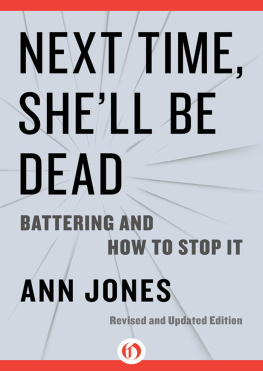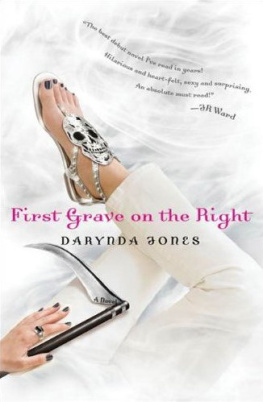Rosemary Jones - City of the Dead
Here you can read online Rosemary Jones - City of the Dead full text of the book (entire story) in english for free. Download pdf and epub, get meaning, cover and reviews about this ebook. genre: Romance novel. Description of the work, (preface) as well as reviews are available. Best literature library LitArk.com created for fans of good reading and offers a wide selection of genres:
Romance novel
Science fiction
Adventure
Detective
Science
History
Home and family
Prose
Art
Politics
Computer
Non-fiction
Religion
Business
Children
Humor
Choose a favorite category and find really read worthwhile books. Enjoy immersion in the world of imagination, feel the emotions of the characters or learn something new for yourself, make an fascinating discovery.

- Book:City of the Dead
- Author:
- Genre:
- Rating:5 / 5
- Favourites:Add to favourites
- Your mark:
- 100
- 1
- 2
- 3
- 4
- 5
City of the Dead: summary, description and annotation
We offer to read an annotation, description, summary or preface (depends on what the author of the book "City of the Dead" wrote himself). If you haven't found the necessary information about the book — write in the comments, we will try to find it.
City of the Dead — read online for free the complete book (whole text) full work
Below is the text of the book, divided by pages. System saving the place of the last page read, allows you to conveniently read the book "City of the Dead" online for free, without having to search again every time where you left off. Put a bookmark, and you can go to the page where you finished reading at any time.
Font size:
Interval:
Bookmark:
Rosemary Jones
City of the Dead
Prologue
Spring 1467
On such a day as this, a day of such good weather that people wandered in the streets with no more business on their minds than to dally in the warm sunshine, Waterdeep irritated Lord Dorgar Adarbrent.
He walked muttering through the crowds, pushing the more aggravating pedestrians aside with his cane. He knew his irritation was irrational.
After all, on a fine day, the city presented itself in its greatest glory: the gleaming statues, the marvelous buildings, the crooked streets, the busy harbor, the hustle, and the glamour. But there it was. The vibrant city, the noisy and argumentative city, annoyed him. Yet, for almost all his long life, Lord Adarbrent had loved Waterdeep more than any living thing.
On such a day, Lord Adarbrent's unquiet mind drove him to the quietest place in all of Waterdeep, the City of the Dead. At the Coffinmarch gate, he turned away from the southern end of the cemetery, avoiding the many visitors and public monuments there. Instead he trod the lesser paths leading north, toward the tombs emblazoned with the old names, the noble names, the names of families once known and now long forgotten by all but him.
Soon his own footsteps crunching upon the gravel were the only sounds he heard. Oh, if he concentrated, there were the indistinct whispers that always filled the air in that silent place, but the sun was bright overhead and the shadows were driven into hiding beneath the bushes or in their graves and he had never been afraid of ghosts.
At last he reached the tomb he sought. He unlocked the bronze door. A slight rustle stirred in the dark and a whiff of rose oil, faint as the memory of a dream, issued forth. His mind immediately soothed, Lord Adarbrent descended the mausoleum's steps into the gloomy, peaceful depths.
The ball sailed over Sophraea's head and landed with a splat in the middle of a mud puddle. From her viewpoint as a goalpost, watching her various older brothers and many young male cousins scramble after the ball, five-year-old Sophraea could not tell if the boys had scored a point or incurred a penalty. It did not seem to matter. Everyone was sliding through the puddle, fists flying. The misshapen and much abused leather ball rolled away unheeded, stopped finally by an uncarved headstone.
Above the little girl, the sky shone a cloudless blue, only the thinnest ribbons of white clouds scudding past the crooked gables of Dead End House.
The ringing of hammers against wood, iron, and marble echoed through the yard as Sophraea's father, uncles, and older cousins began their morning's work on the gravestones and coffins commissioned for the recently deceased of Waterdeep's richest families.
Sophraea's mother, grandmother, and aunts had agreed that the first day of Tarsakh was a beautiful day for cleaning. The Carver women were busy turning over carpets, sweeping out dust, and generally scrubbing Dead End House from basement to attic.
Swept out of the door with her brothers and younger cousins, Sophraea sat upon a stack of clothing abandoned by the boys, kicking her legs and wondering what to do. After designating her as a boundary marker in one of their endless ball games, Sophraea's older brothers had told her to "stay put and don't follow us," an instruction she heard so often as the youngest member of a large and mostly male family that she forgot it immediately.
While the boys fought and tussled for the possession of the battered leather ball, Sophraea grew more and more bored with her job as a coat weight. With a shout, her brother Leaplow jumped on her cousin Bentnor, who had just regained his feet after the last wrestling match, and the rest of the boys piled on top.
Realizing that nobody was paying any attention to her, Sophraea slipped off the pile of the boys' coats and wandered to the far end of the courtyard.
The gate to the City of the Dead stood ajar, one of her bigger cousins having just carried a bronze marker through it. One of the black and white Carver cats slid through, intent on its own business in the graveyard. Beyond the gate, Sophraea could see the tangle of spring flowers, tall bushes, and gleaming marble tombs. A buzz of bright wings amid the flowers attracted her eye.
Little Sophraea Carver stepped through, the open gate and into Waterdeep's great graveyard. No one saw the tiny girl with the head of black curls disappear into the haunted pathways of the City of the Dead.
Behind her, the shouts and the thuds of the boys at play faded away. As she trotted down the crushed stone path, Sophraea passed beneath the shadow of a marble monument, the statue of a tall woman dressed all in armor weeping into the hand covering her face. Tears trickled through the stone fingers to fall into a simple basin at the woman's feet. Sophraea kneeled and peered into the pool, trying to catch a glimpse of spring tadpoles or her own reflection. But the water was too brown and murky, stained by the remains of winter's dead leaves.
A quick search yielded a long branch, light enough to carry to the basin and long enough to satisfactorily rake the leaves out of the pool. Happy with her work, Sophraea forgot about her brothers and did not even notice when the hands of the statue moved, so the weeping woman now peeped through open fingers at the child laboring by her marble feet.
Despite the bright sun, pale fingers of mist twined around the rooftop of the tomb behind the little girl. The statue raised its head and glared. The fog slipped back to a hole in the ground. Oblivious, Sophraea continued to clear the pond of debris.
Eventually, the long evening shadows crept across the grass to touch the edge of the pool. Leaves stirred in the bushes surrounding the pool, although no breeze ruffled the little girl's dark curls. Sophraea looked up. The sun had sunk low enough to be hidden by the great mausoleum before her.
Having lived all her short life above the workshop where her family created such figures as the marble statue above her and the stone sarcophagus and barrel tombs surrounding her, these monuments to the dead did not worry the little girl. But the shadows growing darker in the corners and the bushes rustling around her made Sophraea think that the time had come to find her way home. Besides, she was hungry and if she didn't get back quickly, the boys would probably snatch more than their fair share of supper.
Setting off on the path as fast as her short legs could trot, Sophraea rounded the corner to face a brick and timber tomb built like a miniature Waterdeep mansion. The tomb's bronze door swung wide open. Stepping carefully through the door was a tall man, who ducked his head a little to avoid knocking off his wide-brimmed hat against the marble lintel. The bronze door gave a mournful squeal as he pulled it shut behind him.
Taking a large iron key from his pocket, the gentleman locked the door with a distinct click. He turned and Sophraea instantly recognized the face as exactly the sort of creature her brothers whispered about in the hallways of Dead End House late at night when they were supposed to be climbing the stairs to their bedchambers.
Beneath the wide-brimmed black hat, the visage presented to the terrified child was a cadaverous mixture of yellow and white, the gentleman's pale skin heavily pockmarked across the nose and cheekbones. His lashes and eyebrows were a mottled gray and the color of his eyes a muddier brown than the pool where she had been playing.
Recently dared by her brother Leaplow to peek in a coffin after the occupant had been tenderly placed there, Sophraea did not hesitate to identify the figure now bending closer to peer at her as a corpse!
"Are you lost, child?" said the corpse in a suitably creaky and cracked voice.
"No," whispered Sophraea, too terrified to either scream or run. Then she repeated something that she had heard a hundred times around the family table but never understood. "I am a Carver. Carvers can't get lost."
Font size:
Interval:
Bookmark:
Similar books «City of the Dead»
Look at similar books to City of the Dead. We have selected literature similar in name and meaning in the hope of providing readers with more options to find new, interesting, not yet read works.
Discussion, reviews of the book City of the Dead and just readers' own opinions. Leave your comments, write what you think about the work, its meaning or the main characters. Specify what exactly you liked and what you didn't like, and why you think so.




